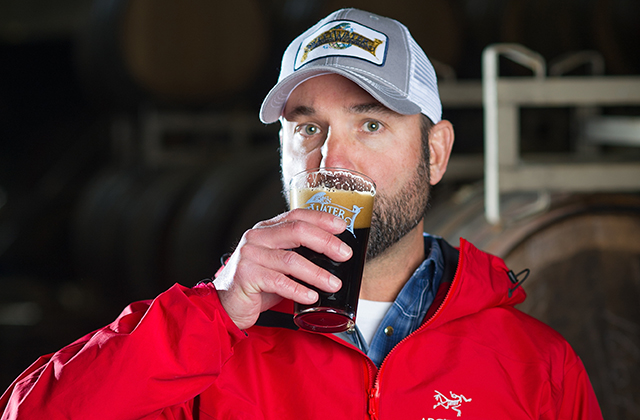
Most of the early stories of why SweetWater Brewing’s founder Freddy Bensch wanted to open a brewery was his experience in Atlanta during the 1996 Summer Olympic Games. However, the idea and story really begins much earlier with Bensch in bung launching battles at Boulder Beer Company in the early ’90s.
“Remember the Golden Gate kegs,” asked Bensch knowing I was much too young to really remember. “You probably don’t even know what that is do you? Golden Gate kegs have the bung on the side, the wood bung. You ever seen that?”
The conversation quickly made Bensch grin and consider that he might be older than he thinks, but in truth he really isn’t all that old.
“So this thing would come in like this … there’s a bung right here,” he said. “You know, pretty much fill it, bam, wooden mallet. Or, excuse me, mallet, wooden bung, and off you go. My first job was to knock the bungs out, empty the beer and wash the kegs.”
Jeff Brown, the president of Boulder Beer Company, remembered Bensch and the other workers sitting out back challenging each other to see who could knock the bung out from the loading dock across the street.
“It was nasty,” said Bensch. “It was cool though, because those things were under pressure … myself and my other original partner, would sit there and shoot’em at each other.”
This idea and passion for brewing was steadfast with Bensch, so when he rolled into Atlanta for the 1996 Olympics, he was seeing the perfect location for his dream — a booming city with excitement and potential for a brewery. “All we were focusing on was building a brewery, you know creating the brewery for what it would stand for,” said Bensch. “Working on distribution … trying to get a home.
“We lived, breathed and slept in the brewery 24/7. Pretty much in the beginning we built a brewery all day and at night we’d go out and try to talk to people about what we were doing.”
As SweetWater started brewing beer, Bensch and his team spent the remainder of their time trying to get people to come down to the brewery to taste the creation. “We loved what we were doing,” he said. “It was a labor of love. Loved brewing it, loved building the brewery, loved coming up with the names and sort of the stories behind it. And, more importantly, you know, I got so much satisfaction out of going out in those early days, and even now, and letting people sample our blood, sweat and tears.”
As mentioned in other stories, Georgia isn’t the easiest location for a brewery to spawn from. However, SweetWater launched at almost a perfect time in the mid ’90s. While times were tough, they made quality beer and began exploring options for distribution.
“The thing about the business, it peaks and valleys,” said Bensch. “So you know, there’s going to be slower months, like August and September, and there’s going to be months, May, June and July, where you’re selling 2-3 times more than you would in a different month. The big lesson to learn from us is you gotta have capacity, you gotta have the ability to fulfill the obligations you made with your wholesalers.”
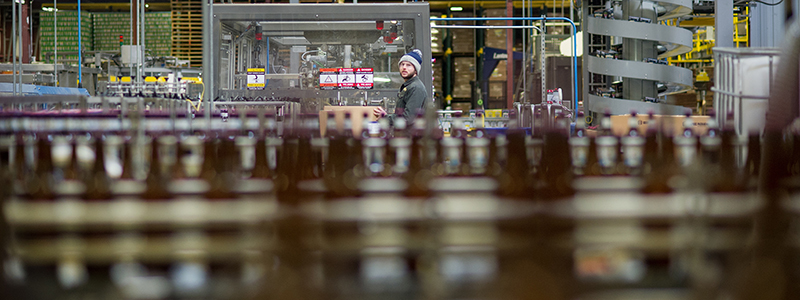
SweetWater is currently in 18 states and growing at a pace that it can control and provide beer to fulfill wholesalers. “But you know, in the vein, it’s 18 states, but we haven’t opened up all of Texas yet,” said Bensch. “Just one market in Texas. We kind of weaned off of opening up all states and going more city to city.”
The city-to-city strategy has allowed SweetWater to break into major markets without the overhead of a full state, but while targeting major populations. It has also helped with its sales force as it can truly focus in on the areas that are important to the company.
Although, what SweetWater has realized in this growth and the decision for a second facility — a location to be announced soon — is its ability to showcase its facilities with greater opportunity than it can in Atlanta.
“We’ve always built our brand from the ground up, so to say,” said Bensch. “And the ability to have customers come in to see what we’re doing, you know kick the tires, and see the authenticity, is second to none.”
Additionally, the second facility will line right up with SweetWater’s most important commitment. “For us, it’s all about freshness,” said Bensch. “We don’t want to ship beer across the country. So our story is a little bit different than some of these west coast guys coming east. When we go west we don’t have distribution past Telluride, Colorado. So it’s a little bit more ominous for us because we have to go out and build the distribution on top of building the brewery. It’s almost going back to square one for us … which I’m getting goosebumps. It’s exciting!”
For Bensch the second brewery is an opportunity to start somewhat fresh. Sure, the brand will already be established and the beers, some will have tasted. But in its roots, Bensch wants to develop the new location with all the knowledge he’s collected over the years.
“You know, to be able to take all the lessons we’ve learned over the past 18 years and really apply them to this next facility … it’s a whole new chapter for us,” he said. “You know to be able to introduce a product to people who may have never even heard of the brand, let alone tried it.”
What continues to strike a chord with Bensch is the growth of SweetWater and the rest of the industry. “You know, when it’s on, it’s on,” he said. The opportunities that are presenting themselves to breweries still seem somewhat of a dream. “It just goes to show how quickly, you know, the category can really change,” he continued.
A strong marketing presence, good music and highly populated areas has been a major theme for SweetWater. It has many unique beer names just like other breweries throughout the U.S., but it possesses a focus on outdoors, music — especially with its 420 Festival in Atlanta each year — and targeting high beer populations. “You know, we’re full of good ideas,” Bensch laughed. “You know, the first fest was 400 people, 30 kegs and 40 dogs, and whatever everybody else had in their pockets. It started off with TV of Green was our first band. You know, over the course of the last 10, 12 years, whatever it’s been, we’ve just progressively continued to invest in it. And you know, it’s really a cool showcase for people to come in and … see what we’re about.”
Having an opportunity to share beer and music with the public is going to be a driving force in the selection of the second brewery location. “The brewery is an extension of who we are,” said Bensch. “You know, we were pretty young when we started this thing, and whether it’s The Dead or Phish, or Panic … when we weren’t brewing, those were the concerts we were hopping in the car to go check out. So music is intertwined in SweetWater to its bones.”
While the music was at the root of SweetWater, it was also deep within the individuals that started the brand, which somewhat hurt them early on. The biggest struggle they had was finding a distributor that would “take them seriously,” according to Bensch. “When we came to Atlanta I think we went on five or six distributor meetings, and you know the door was closed,” he said. “We were wearing Hawaiian shirts, flip-flops and shorts at that point. We got told ‘no, no, no, we’re not interested in picking you up.’”
Finally, of course, SweetWater found its place with a wholesaler that would give them a chance. “They weren’t really in the beer business at that point,” said Bensch. “SweetWater took off and we quickly found ourselves in a Wine and Spirits house that didn’t really have the infrastructure to take care of beer, so lesson learned — you’ve got to really be looking five or 10 years down the line.”
In reality, what early 20-something is considering distribution models and strategies for 10 years down the road. Most can’t even fathom being 30. “I’ll just continue to emphasize picking your wholesalers right,” said Bensch. “And then nurturing that relationship, because at the end of the day you can control the quality of your beer, what it looks like coming out of here, and your sales people, but you gotta have that right partner who gets you to really get it to market. It’s critical!”
Over the years those partners, both in Georgia and throughout the U.S., have helped SweetWater grow tremendously. However, Bensch has his eyes set on the next stage of development for the brand. First, build the new brewery that will showcase all the lessons learned from SweetWater’s first two decades, and then bring the brand further west so everyone has the opportunity to taste the southern-grown brews.



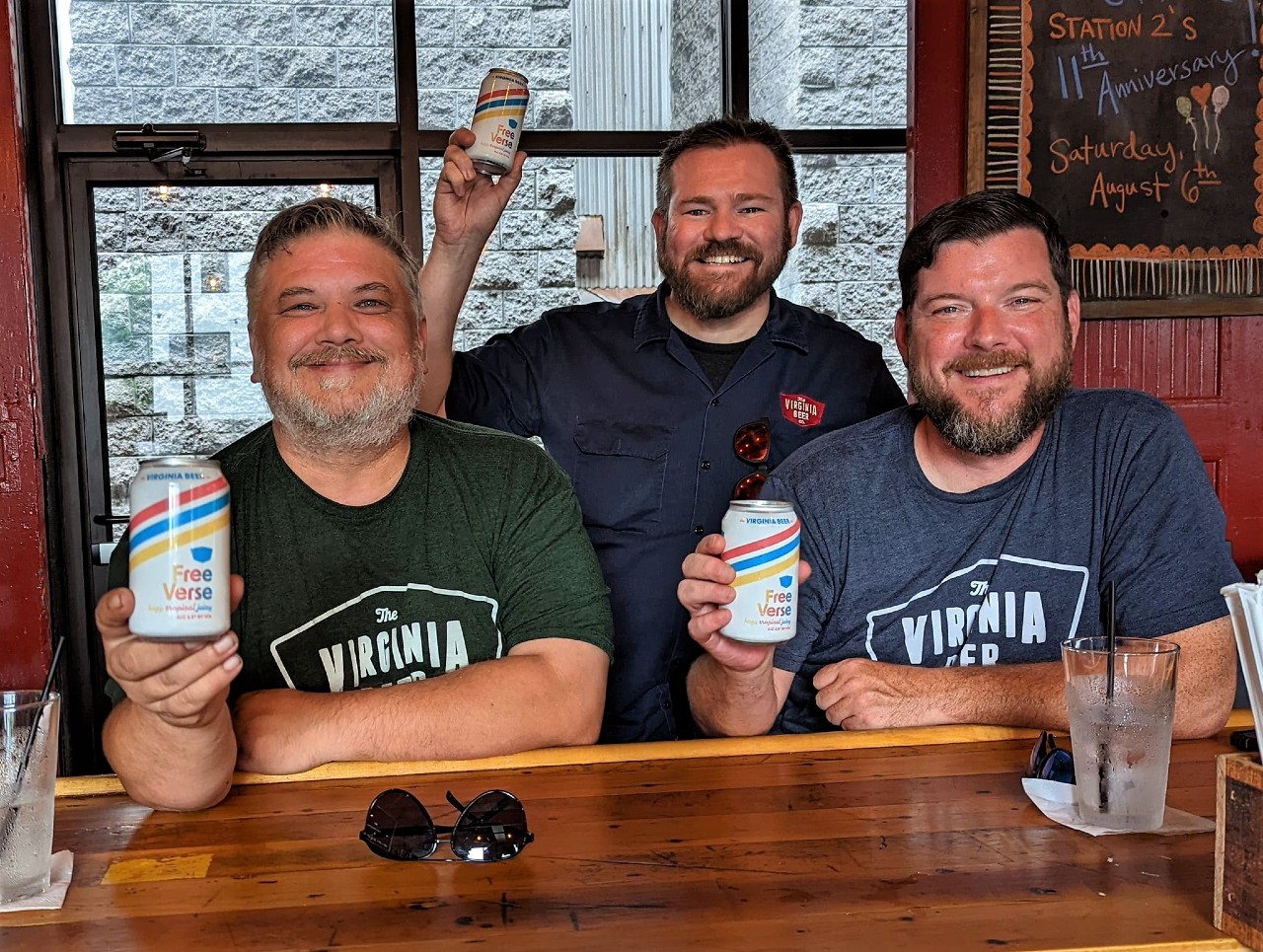
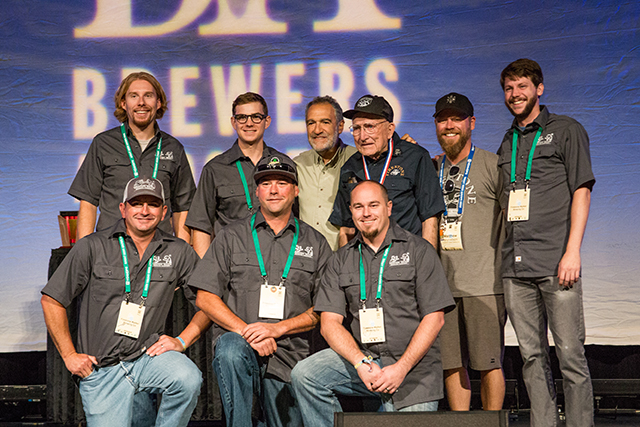
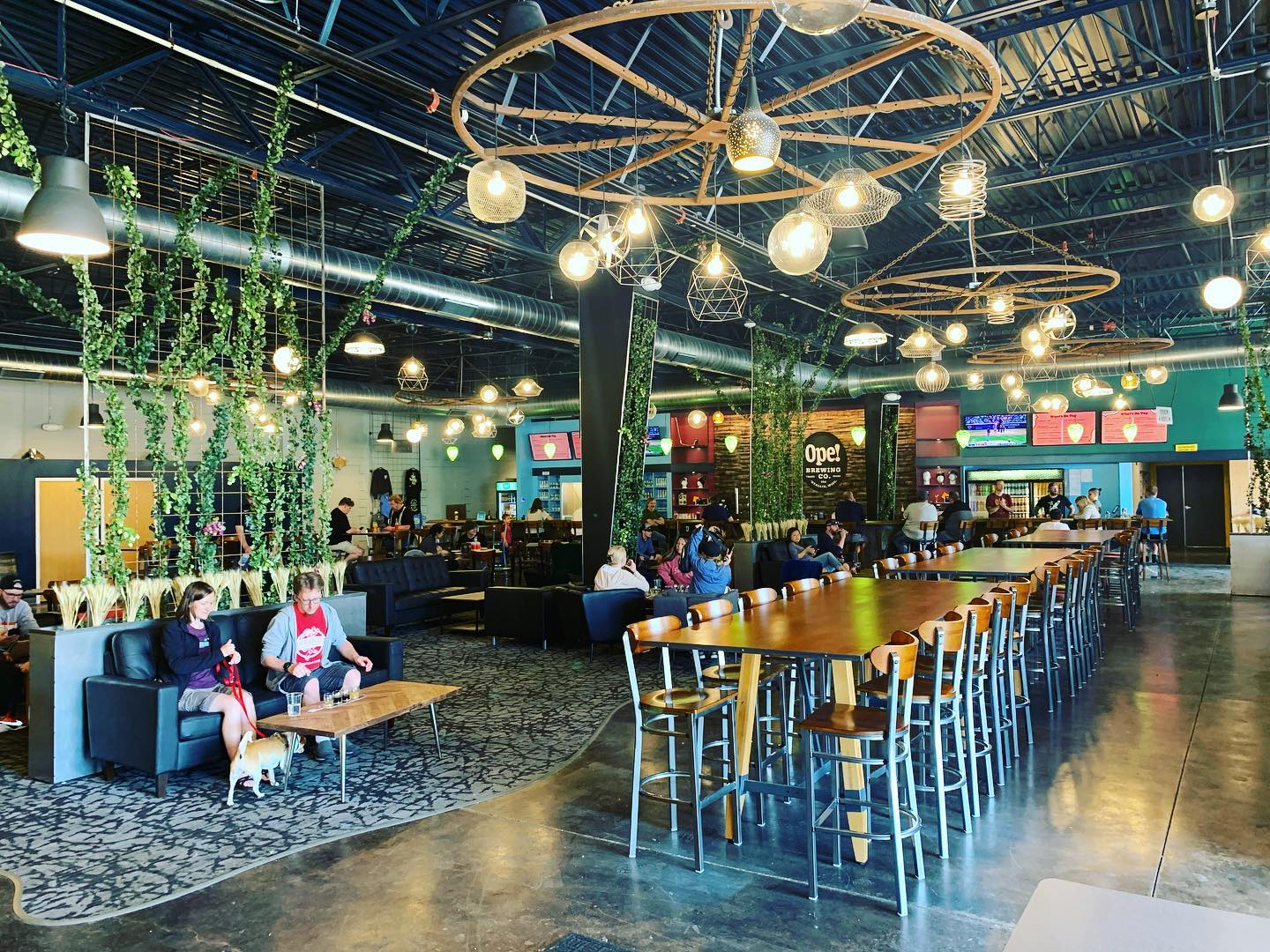
1 Trackback / Pingback